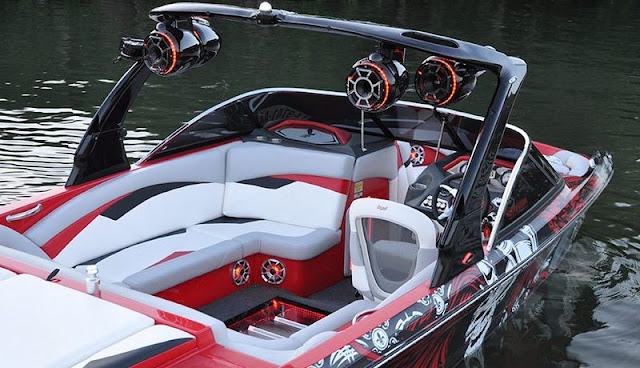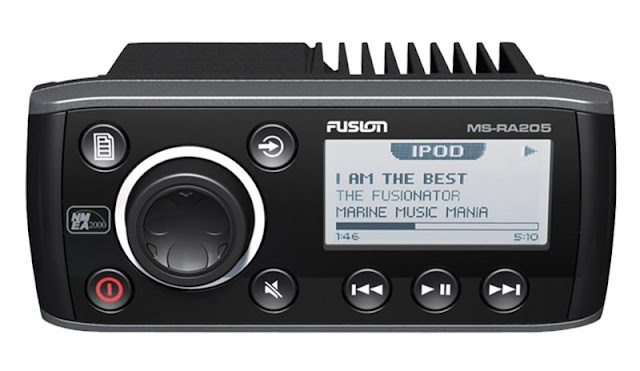Stereos are great, and we like to be able to use them everywhere. However, if you try and use a stereo system somewhere where there is going to be water, then you have a major problem. That is because water is going to ruin your stereo, unless you have a Marine stereo.

These are stereo systems that can actually stand up to water and can be used on places like boats and what not. Now you just need to know how to go about buying one of these, and that is where the Marine stereo shopping guide comes into play. It can make shopping for one of these super easy.

The Marine Stereo shopping guide is a great way to help yourself find the stereo of your dreams and to do it quickly. These shopping guides are going to let you know where the best place is to buy one of these stereos, and how to get them for cheap. On top of that, it's also going to let you know what to look for when buying one of these stereos to make sure you are getting your money's worth.

If you are going to get a Marine audio, you first have to be asking where you are going to put it. Are you going to have it mounted outside somewhere or in your shower? Are you planning to have it installed in a boat? After you answer these questions, you will have a better idea of what you need to look for when looking for these systems. You have to ask yourself if it's always going to be in water, or if it's only going to be in water sometimes.
By asking yourself these questions, you will have a better idea of what model works best for you. Some of them can repel water, but over time, the water can get in. These are good for boats where there is just a chance that it might be caught out in the rain or a little water gets on it. Other models keep the water from getting in all the way, which means that they do not have to be away from water at all. These are the ones you may want installed in a shower.

Knowing which one is right for you is something that you have to look into. Of course, there are going to be some that cost more than others, and this is why it's best to shop online for these things.
Comparing marine stereo equipment:

After all, you may not like the first one you see, but you may find one later that you like a lot more. That's the one you should end up with. So, when looking for these stereo systems, it's important to keep in mind what you are buying it for and what kind you are truly going to need.

It's always better to end up with whatever it is that you wanted in the first place. Just settling for what you find is not the best way to go. It's always better to be on the safe side of things and get what you truly want. So, remember to take your time, and you will be fine.
Some boats are equipped with grounding plates, but not all. If yours doesn't have one, grounding a stereo can be challenging. Consult your manufacturer for more information on where to ground components in your boat.

These are stereo systems that can actually stand up to water and can be used on places like boats and what not. Now you just need to know how to go about buying one of these, and that is where the Marine stereo shopping guide comes into play. It can make shopping for one of these super easy.

The Marine Stereo shopping guide is a great way to help yourself find the stereo of your dreams and to do it quickly. These shopping guides are going to let you know where the best place is to buy one of these stereos, and how to get them for cheap. On top of that, it's also going to let you know what to look for when buying one of these stereos to make sure you are getting your money's worth.

If you are going to get a Marine audio, you first have to be asking where you are going to put it. Are you going to have it mounted outside somewhere or in your shower? Are you planning to have it installed in a boat? After you answer these questions, you will have a better idea of what you need to look for when looking for these systems. You have to ask yourself if it's always going to be in water, or if it's only going to be in water sometimes.
By asking yourself these questions, you will have a better idea of what model works best for you. Some of them can repel water, but over time, the water can get in. These are good for boats where there is just a chance that it might be caught out in the rain or a little water gets on it. Other models keep the water from getting in all the way, which means that they do not have to be away from water at all. These are the ones you may want installed in a shower.

Knowing which one is right for you is something that you have to look into. Of course, there are going to be some that cost more than others, and this is why it's best to shop online for these things.
Comparing marine stereo equipment:
- Water resistance: If your gear is "water resistant," that means it can handle splashes and light rain, but isn't built to handle submersion. Levels of resistance vary by manufacturer. Waterproof products, on the other hand, can be fully submerged without damage, though the specifics vary here, too.
- UV resistance: Quality marine gear is designed to withstand sun damage. It's a key feature to look for on receiver faceplates, speaker cones and remote controls.
- Anti-corrosion protection: Salt water can turn great gear into ballast in no time. Marine gear is designed to resist rust and corrosion, with coated circuit boards, plated connections, and rust-resistant chassis components.

After all, you may not like the first one you see, but you may find one later that you like a lot more. That's the one you should end up with. So, when looking for these stereo systems, it's important to keep in mind what you are buying it for and what kind you are truly going to need.

It's always better to end up with whatever it is that you wanted in the first place. Just settling for what you find is not the best way to go. It's always better to be on the safe side of things and get what you truly want. So, remember to take your time, and you will be fine.
Some boats are equipped with grounding plates, but not all. If yours doesn't have one, grounding a stereo can be challenging. Consult your manufacturer for more information on where to ground components in your boat.
Comments
Post a Comment